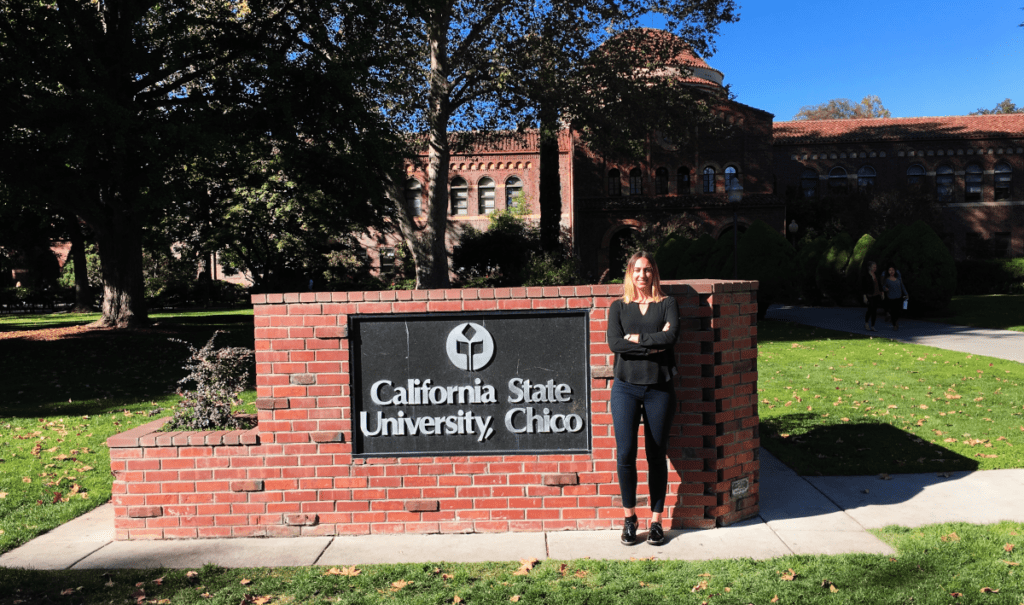What is Slow Travelling?
Slow travel is the alternative to conventional tourism. Forget hopping from one place to another, trying to work your way through a checklist of tourist spots. With slow travel, travellers immerse themselves in a culture, prioritizing authentic experiences over mass tourism. (Read more about slow travel here).
How Do You Slow Travel?
Compared to more conventional travel, where you can just book a one-week vacation or a weekend city trip, slow travel is a bit trickier to do. But depending on what you’re looking for when slow travelling, there are different ways you can slow travel. I have personally tried a few different slow travel methods so far.
One thing you for sure need to slow travel is time. Then the goal is to immerse yourself in a different culture and live your life without having the pressure and stress that conventional tourism brings with it.
Having some financial resources is for sure always ideal too, but there are also ways to slow travel where you can make some money.
Exchange Semester
Exchange semester, study abroad or Erasmus – whatever you call it, it is essentially going abroad with your University. This was my first time slow travelling abroad (or being on my own abroad for that matter) and it was one of the best times in my life. Especially when you’re younger this can be a great way to move abroad since you will get a lot of support from your home and host university. Also, you will meet a lot of other exchange students who are in the same boat, making things a lot less scary.

Here are some of the benefits and disadvantages of slow travelling through studying abroad.
Benefits of an Exchange Semester
- You Get Plenty of Support
It’s an ideal way to make your first experiences abroad since your home university and your university abroad can provide you with plenty of support. My home university supported me through the whole process of signing up for the exchange semester and gave me guidelines when it came to the necessary documents like getting the correct visa.
My university in California had a dedicated team for the program and every exchange student had a buddy allocated. The study abroad team also organized a ton of events including a pizza party where we could meet all the other exchange students at the university – a great way to make friends. They also made sure we had the required health insurance and they were available for any questions. And believe me, I had a TON of questions before I left my home.
- It’s Easy to Make Friends
When you’re going abroad with a University it’s quite easy to make friends. On one hand, you can meet other exchange students who are going through the same experiences (which definitely bonds) but you also get in contact with locals because you will be attending classes with them (and sometimes even do group projects together). It’s a great way to learn more about the culture.
- Your Time Abroad is Limited
Another reason why this is a great way to slow travel is that the time you’ll be spending abroad is limited. Especially, when you’re going abroad for the first time it can be quite intimidating to go for an unspecified time. When you study abroad it’s usually a semester (around 4-5 months) or a year. Although I personally often had the desire to stay longer in a place, I know the first experience of living in another country on your own can be very overwhelming. Knowing that in a few months, you will be going back home anyway can help to push through culture shock (and believe me whatever comes after the culture shock is worth it).
Disadvantages of an Exchange Semester
- You Have to Be a Student
You have to be enrolled in a course for this to be possible. It can also depend on the school or course you’re taking that doing a study abroad might not be available to you. If you haven’t started uni yet (or you choose not to study at all) there are different options to slow travel abroad.
- It Can Be Quite Expensive
Financially this might not be a possibility for everyone. Although some student visas allow you to work next to studying abroad, there are a ton of costs associated with studying abroad (visa, flights, rent, high exchange rate and more expensive prices, etc.). For some people, it could be possible to get a small credit to finance an exchange semester, but there are also other options for living abroad, which have less costs associated.
Take a Job Abroad

Another option to slow travel is to take a job abroad for a certain time. I went with this option for my 4th time abroad and it for sure brings some benefits with it. (Nowadays there’s also the option to work remotely but more about that later).
If you are interested in working abroad, there are tons of companies that are actively hiring people and relocating them. In Europe, the jobs are often in cities like Lisbon or Barcelona. Usually, these companies offer jobs like customer service or content review positions. IMO those might not be the most exciting jobs but if they give you the opportunity to live abroad it can be worth it.
I got my job in Lisbon through my network, but before that, I had received offers via LinkedIn and I’ve also seen a ton of ads on Instagram for similar jobs. If you’re interested in slow travelling like this, I’m sure you’ll find something fairly easily.
Benefits of Working Abroad
- You Might Get Relocated by Your Company
This of course depends on the company and job offer but some companies support their new employees with the relocation. When I moved to Lisbon, this was my experience. I got help with getting my tax number (NIF), social security number (NISS) and other documentation. Also with apartment hunting, they supported me and I was able to hire an accountant through my company to help fill out the tax declaration form. In some cases, you might even be supported with getting a work visa, which I in my case didn’t need.
- You Receive a Steady Income
Another benefit of moving abroad for a job is the salary that you’ll receive. Although you will have more time as a student to explore and enjoy your time abroad, it also means not having a steady income. When you decide to work abroad you’ll have a regular income. However, depending on where you’re from this salary could be a lot lower (or higher) than in your home country.
- You Can Meet New People
Through working abroad you get to meet a lot of different people. While as a student you will often meet people your age and with similar interests, when you work abroad you get in contact with people from all walks of life, which is very enriching. Finding people your age might take a little more effort, but there are many different ways to find people you connect with. Check out my blog about making friends abroad.
Disadvantages of Working Abroad
- You Might Not Meet the Right People at Work
Although you will be able to meet new people at your place of work, they might not be people your age or people you vibe with. Or maybe you don’t feel like you have a great connection. Hence, you have to put more effort into making friends.
- You Might Have a Strict Work Schedule
As previously mentioned you can manage your time more flexibly as a student abroad compared to working at a company abroad. If you have a 9 – 5 job then you’re often left with evenings and weekends. I, however, find that when living abroad I tend to be a lot more socially active than I would at home. So even if you’re working a normal job, there’s still a lot to do in your free time. Also, this way of living abroad really gives you an insight into how people in your chosen country live their day to day and it allows you to really dive into the culture.
- You Might Have a Minimum Duration You Have to Stay
Depending on the contract you have and if the company gave you money for the relocation it’s possible that you have to commit to a certain period that you will stay with the company. This can be a benefit but also a disadvantage. If you’re having a great time abroad I’m sure it doesn’t matter to be required to stay for a while. However, if you decide it’s not the place/culture for you, a year (or whatever the period is) can become quite long. Also, if this is your first time abroad it for sure can become quite overwhelming to have to stay. But from my experience, it is always worth pushing through culture shock (even if you need to have a little cry session) because you’ll never know what you would be missing out on if you give up early.
- There Might Be Language Restrictions
Ideally, we would all speak the language of the country we’re slow travelling in. But the reality is quite far from that. Depending on the job you want to work there might be a language requirement before you can get a job abroad. But there are also a lot of companies that are interested in hiring people from abroad who speak other languages. (I know a lot of people who got hired for their job in Lisbon because they speak Swedish, German, Dutch, etc.).
Do a Language School
Another option to slow travel is to do a language course abroad. This is a great way to not only discover a culture but also learn a language. If you’re playing with the idea of slow travel, this might be one of the easiest ways to try it without having to change your life completely. If you’re thinking about doing a language school my blog post Is Doing a Language School Worth It? might help you.
I also think this is one of the best ways to test the waters if you haven’t really lived abroad yet. You can carefully select where to go and how long you want to stay. Especially, if you are not sure if the slow travel life is for you, pick a culture which is slightly similar to your own. You will always have a culture shock no matter where you go, but it might be easier to deal with if your host country is kind of similar to your home country.

Benefits of Doing a Language School
- You Can Select the Length of Your Stay
For most language schools you can select how long you want to stay abroad. This can range from a few weeks to a few months. I would recommend this for someone who’s going abroad for the first time. If you’re not sure how you’ll feel being far away from your family and friends it can be a good idea to go abroad for 2 – 3 weeks. Or if you’re working full time and you’re not able to take off more time this is a great way to experience life abroad for a few weeks a year.
- You Can Make Friends Easier
Language schools are great for meeting other like-minded people. Every day you will attend classes with other people trying to learn a new language. Most of these people are there on their own as well, hence they are also looking for connections and friends. Unlike university courses where most students will be your age, you’ll also meet a lot of people of different ages, different careers and walks of life. It’s a great way to break out of your normal social bubble.
- You Can Get Housing Through Your Language School
When I went to South Korea in 2022 I was able to organise almost everything through my language school. They gave me not only the options for the course but also accommodation. Depending on how experienced you are, you might not need this but it can be very helpful to get accommodation through your school especially if you don’t speak the language. My school had not only options for ministudios ( 고시원 “Gosiwon”), which is where I ended up staying, but they also had host families that would take students in. I personally decided against it, since I was just used to living more independently. But living with a host family can be a great opportunity to learn about the culture. Some of my friends lived in host families and had a few great stories to tell.
- You Get Support From Your Language School
Besides the support with accommodation, some language schools also offer to pick you up from the airport and help answer questions before and after your arrival. My school sent me a detailed pdf beforehand with a lot of valuable information. Although I had been abroad a few times at that point, South Korea was the first country I couldn’t really rely on my English so I was grateful for any information I could get.
- You Learn The Language as well as the Culture
This is probably one of the most inversive experiences you can have. Besides experiencing the culture you are also learning the language and at the same time, you’re able to use what you learned in the classroom.
Disadvantages of Doing a Language School
- People Won’t Stay for the Same Duration
Some language schools offer intakes at regular intervals (for example every Monday). While this makes it very flexible to book, it can become a little frustrating because often the people you meet won’t stay the same duration as you. It can be frustrating to constantly have to make new friends.
- It Can Be Quite Expensive
Language schools are certainly more expensive than just a budget backpacking trip. However, you get a lot out of it. You will not only learn the language but you also get to learn so much about the culture.
Do a Working Holiday
Another option to stay in one place for a long time and to make some money while doing it, is the working holiday visas. Depending on where you’re from you have a few countries to choose from. Working holiday visas usually allow you to enter a country and work under certain guidelines so you can travel, make some money and stay in a country for a year or more.
Benefits of Doing a Working Holiday
- Make Money While You Travel
This is a wonderful option if you don’t have a lot of savings and want to work in your new country of choice. With these types of visas, you can go abroad find a job and even get settled for a little while. Usually, there are some type of restrictions on what kind of work or how long you can stay at a job. But this also gives you a lot of flexibility. It’s great if you want to live abroad for a while but don’t wanna commit to a job or place for a year or so.
- Meet People Who Are Doing the Same Thing
When you go to places like Australia or New Zealand where working holidays are very common you will for sure meet a bunch of people doing the same thing. It’s so easy to make friends and chat with people because of that. Also if you are doing some type of farm work or similar you will end up making a lot of friends.
- Get in Contact with Locals
Working holidays are also a great way to meet locals. Especially when you’re working somewhere it makes it easier to meet locals and to make friends with them. Often working holiday jobs are in hospitality where you always have some type of interaction with locals.
Disadvantages of Doing a Working Holiday
- Your Time to Stay in a Country is Limited
Most working holiday visas have a time restriction which comes with the visa. This can be great if you decide to only go abroad for a year or two. Most working holiday visas also require you to do some type of farm work / specific work to be able to extend your visa.
- Not Everyone is Eligible for a Working Holiday Visa
Usually, working holiday visas require you to be somewhere between 18 – 30 years old. It also always depends on the country you’re from and what options you have. For example, as a Swiss citizen I’m quite restricted in what countries I can choose from (luckily they recently added Australia to that list). Besides being a certain age and of a certain nationality there might be more requirements for the visa.
Become a Digital Nomad
The previous ways of slow travelling were examples of things I’ve personally done before. But there are also a lot of other options out there. One of the best and most flexible ways to slow travel is to become a digital nomad. As of now, I’m unfortunately not able to work and live as a digital nomad but throughout my time abroad I have met a few.
Benefits of Being a Digital Nomad
- Make Money While You Travel
It’s a great benefit that when you can work from anywhere you don’t have to worry too much about making money while you’re abroad. It also offers much flexibility because you can go and change locations if you feel like it’s not a great fit. With other ways of slow travelling, you might be a bit more committed to a location.
Disadvantages of Being a Digital Nomad
- You Might Be Restricted to a Time Zone
Depending on what kind of job you have, you might be restricted to staying within a specific time zone. This might mean you’re not as flexible when choosing locations, but it would still allow you to slow travel and explore a different culture. Some of my friends had shifted working hours and would work from afternoon to night and were still able to make the most out of living abroad.
- It Can Be More Difficult to Make Friends
When you’re working remotely it can be for sure more difficult to make friends and to connect with people than when you attend university, a language school or if you’re working a job. However, I do believe it’s always possible to make friends if you just put in enough effort.
Volunteering
Another way to slow travel is to volunteer. There are a lot of different options out there (however, I haven’t had the chance to try any). I have often heard Worldpackers as a great way to find volunteer positions worldwide, though.
Benefits of Volunteering
- You Don’t Pay Rent
Usually how volunteering works, is that you work for a specific set of hours a week and in return, you get free accommodations and sometimes even free food and access to activities.
- You Can Meet Other Volunteers
If you are Solo Travelling and trying to meet other people, this is also a great option to meet other travellers. Especially when you’re staying somewhere for quite a while. You might also meet some locals, depending on where you’re staying.
Disadvantages of Volunteering
- You Don’t Get Paid At All
This might be quite obvious, but with volunteering work, you don’t get paid with money. This means that the transportation to and from the volunteering location you will have to pay for yourself.
- Less Stability Than With Other Slow Travel Methods
Compared to other options on this list, volunteering might be a bit more stressful and give less stability. The goal of slow travel is to allow you to create a normal routine while discovering a new place and different culture. While this might be possible with volunteering, I can imagine it to be a lot more adventurous than other options.
Angela
Angela, the mastermind behind theslowtravelista, is a passionate traveler who embraces slow travel's essence. With a knack for immersing herself in diverse cultures, she treasures connections formed across the globe. Beyond her adventures, Angela's vibrant personality shines through her love for spontaneous hair changes, hitchhiking escapades, and culinary delights. Join her for travel insights, laughter, and unforgettable adventures.












One Comment